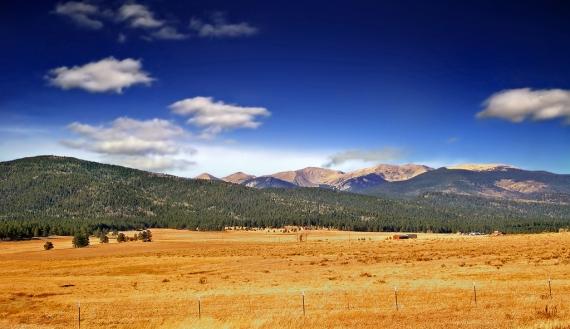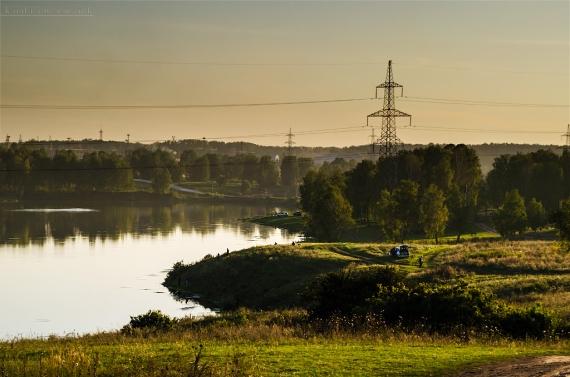Why Is It Important to Dig into Local Jurisdictions before Purchasing Land?
Posted: November 23, 2015 by LandCentury

Buying land is fun and exciting, but you want to minimize your risks as much as possible. One of the biggest overlooks is when an investor purchases land without digging into the local jurisdiction. What normally occurs is that the investor wants a large plot of land and has dreams of developing this land or using it as a long-term investment. But they dont do the research into what the land can be used for, jurisdiction restrictions and other concerns.
You want to safeguard your investment, and one of the best ways to do this is to dig into local jurisdictions before purchasing the land.
Zoning Restrictions
Zoning jurisdictions and restrictions essentially state what can and cannot be done with your land. This is the reason that you wont find a Walmart popping up on the same street as a busy neighborhood, or right on the same exact parcel as an apartment complex.
You may find one of these large retailers close by, but there are zoning laws that restrict where a Walmart is allowed to be built, or any commercial building for that matter. Of course, zoning is a lot more complicated than this. But this is a great example that everybody will hopefully understand. You must ensure that the land you purchase is not zoned for commercial use if you want to build a home on the property. If you have the intent of using the land for commercial reasons, you also have to make sure that the property is not zoned as residential.
Yes, you can change zoning, but this is a very difficult and tedious task. In some cases, zoning cannot be changed.
City Ordinances
If you live within the city limits, your land will likely fall under city ordinances. This would dictate the behaviors of the land. For example, you can't just dump garbage on the side of the land and leave it there. Under city ordinances, youll be required to dispose of the garbage appropriately.
There may also be what is called covenants or deed restrictions. These are agreements between the current landowner and actual buyer of the land. These are different in zoning laws, but they can be deed restrictions that, for example, state you can build on this land for X amount of years in an effort to preserve the land for wildlife. All of these little nuances need to be understood and researched prior to buying your land.
But theres a lot more that you need to know about.
Easements
Easements are when somebody who doesnt own the land has an interest in the land. This is a hard concept to understand because you actually do own the land (it is yours), but there are some concerns.
For example, you may own a piece of property that has no local road access. An easement may be in place under which in an adjacent land owner has allowed the previous owners of the property to use his road to enter into the property. Youll need to know this is in place, because this may restrict you in other areas, such as:
* Running utilities to the property
* Building on the property
You will be able to learn all about easements from your local jurisdiction's courthouse. In the event that you do have no road access, you may need to be granted access from a neighbor if you must go through your neighbors property to enter your land. This is becoming less common because many of these situations have been alleviated by past agreements, but this is still a concern if you own a lot of land that does not have a connecting road.
Building Restrictions
Another concern to consider is building restrictions. What happens is that your neighbors may not appreciate you building a skyscraper right next their home. This would be a major issue, and you might actually lose the case in the process.
Essentially, there are some restrictions in place, in some cities, that dictate how high buildings can be built legally. You may not be able to build a 50-foot tower, for example, within a typical neighborhood. Your neighbors might complain that its an eyesore, youre blocking their natural view, or that youve lowered their home values as a result.
If you buy a large parcel of land, 30 acres for example, youre less likely to come across these kinds of issues.
However, they do exist, and you should talk to your local courthouse and government in an attempt to learn what buildings may be placed in the area. You may even want to go as far as discussing permits, and learning if you can actually use the property for your needs.
Land Restrictions
Much like zoning restrictions, there are certain restrictions that may be in place. If the piece of land had chemical waste on it, you won't be able to use the land to build a development anytime soon. This land would have a certain time period during which no buildings are allowed to exist. This information should be provided to you upon purchasing the land, and disclosed prior to any contractual agreements occurring. Some land may also be designated as a local park or forest. Even if a piece of lead isnt designated as parkland, you may not be able to build on the land or use it for commercial purposes as a result.
All of these nuances can cause you to lose out on your investment. It is a property that cannot be used to its fullest extent. When this is the case, you will have a hard time reselling the land, and youll definitely have to readjust your price so that it is more aligned with the appropriate price for a piece of land that is unusable to some extent.
Many of these concerns do not arise, but they are something you do want to be aware of and talk to your local jurisdiction about. Always find out what can and cannot be done with the land before you purchase it, and what potential restrictions may exist. Major purchases may even require hiring a lawyer to help you through the process.
You want to safeguard your investment, and one of the best ways to do this is to dig into local jurisdictions before purchasing the land.
Zoning Restrictions
Zoning jurisdictions and restrictions essentially state what can and cannot be done with your land. This is the reason that you wont find a Walmart popping up on the same street as a busy neighborhood, or right on the same exact parcel as an apartment complex.
You may find one of these large retailers close by, but there are zoning laws that restrict where a Walmart is allowed to be built, or any commercial building for that matter. Of course, zoning is a lot more complicated than this. But this is a great example that everybody will hopefully understand. You must ensure that the land you purchase is not zoned for commercial use if you want to build a home on the property. If you have the intent of using the land for commercial reasons, you also have to make sure that the property is not zoned as residential.
Yes, you can change zoning, but this is a very difficult and tedious task. In some cases, zoning cannot be changed.
City Ordinances
If you live within the city limits, your land will likely fall under city ordinances. This would dictate the behaviors of the land. For example, you can't just dump garbage on the side of the land and leave it there. Under city ordinances, youll be required to dispose of the garbage appropriately.
There may also be what is called covenants or deed restrictions. These are agreements between the current landowner and actual buyer of the land. These are different in zoning laws, but they can be deed restrictions that, for example, state you can build on this land for X amount of years in an effort to preserve the land for wildlife. All of these little nuances need to be understood and researched prior to buying your land.
But theres a lot more that you need to know about.
Easements
Easements are when somebody who doesnt own the land has an interest in the land. This is a hard concept to understand because you actually do own the land (it is yours), but there are some concerns.
For example, you may own a piece of property that has no local road access. An easement may be in place under which in an adjacent land owner has allowed the previous owners of the property to use his road to enter into the property. Youll need to know this is in place, because this may restrict you in other areas, such as:
* Running utilities to the property
* Building on the property
You will be able to learn all about easements from your local jurisdiction's courthouse. In the event that you do have no road access, you may need to be granted access from a neighbor if you must go through your neighbors property to enter your land. This is becoming less common because many of these situations have been alleviated by past agreements, but this is still a concern if you own a lot of land that does not have a connecting road.
Building Restrictions
Another concern to consider is building restrictions. What happens is that your neighbors may not appreciate you building a skyscraper right next their home. This would be a major issue, and you might actually lose the case in the process.
Essentially, there are some restrictions in place, in some cities, that dictate how high buildings can be built legally. You may not be able to build a 50-foot tower, for example, within a typical neighborhood. Your neighbors might complain that its an eyesore, youre blocking their natural view, or that youve lowered their home values as a result.
If you buy a large parcel of land, 30 acres for example, youre less likely to come across these kinds of issues.
However, they do exist, and you should talk to your local courthouse and government in an attempt to learn what buildings may be placed in the area. You may even want to go as far as discussing permits, and learning if you can actually use the property for your needs.
Land Restrictions
Much like zoning restrictions, there are certain restrictions that may be in place. If the piece of land had chemical waste on it, you won't be able to use the land to build a development anytime soon. This land would have a certain time period during which no buildings are allowed to exist. This information should be provided to you upon purchasing the land, and disclosed prior to any contractual agreements occurring. Some land may also be designated as a local park or forest. Even if a piece of lead isnt designated as parkland, you may not be able to build on the land or use it for commercial purposes as a result.
All of these nuances can cause you to lose out on your investment. It is a property that cannot be used to its fullest extent. When this is the case, you will have a hard time reselling the land, and youll definitely have to readjust your price so that it is more aligned with the appropriate price for a piece of land that is unusable to some extent.
Many of these concerns do not arise, but they are something you do want to be aware of and talk to your local jurisdiction about. Always find out what can and cannot be done with the land before you purchase it, and what potential restrictions may exist. Major purchases may even require hiring a lawyer to help you through the process.




